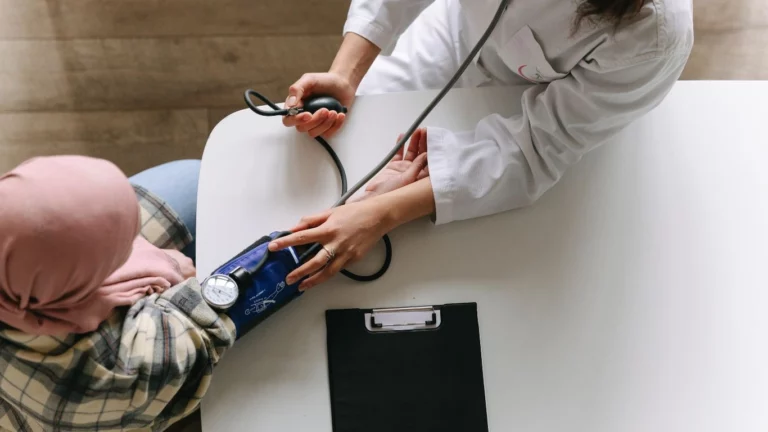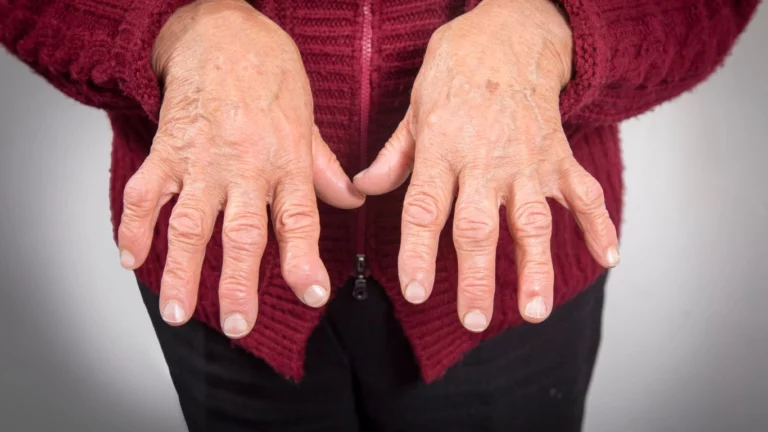Why GERD Gets Worse After Eating Too Fast and How to Avoid It
Have you ever eaten a big meal in a rush, only to feel a burning sensation in your chest afterward? That uncomfortable feeling might be GERD—short for gastroesophageal reflux disease. GERD happens when stomach acid flows back up into your esophagus, the tube that connects your mouth to your stomach. It can be triggered by many things, and eating too fast is a common one.
Understanding how GERD works—and why speed eating may make it worse—can help you take steps to feel better. This article breaks it down simply and clearly so you can understand what’s happening in your body and what you can do about it.
Understanding GERD and Your Digestive System
Your digestive system starts working the moment you take a bite of food. After chewing and swallowing, food travels down your esophagus and into your stomach. A special muscle called the lower esophageal sphincter (LES) acts like a one-way valve. It opens to let food in, then closes to keep stomach acid from going back up.
GERD occurs when the LES doesn’t close properly. This allows stomach contents, including acid, to move back into the esophagus. Since the esophagus doesn’t have a protective lining like the stomach, the acid can irritate it, causing that burning feeling known as heartburn.
While GERD can happen to anyone, frequent or long-term symptoms may signal a chronic condition that needs medical attention. Understanding the role of eating habits—especially how quickly you eat—is an important part of managing it.
How Eating Too Fast Affects GERD
Eating too quickly doesn’t give your stomach enough time to signal to your brain that it’s full. As a result, you might overeat without realizing it. A fuller stomach puts more pressure on the LES, making it easier for acid to escape into the esophagus.
Fast eating also means you’re likely swallowing more air, which adds to stomach bloating and discomfort. All of this increases the chances of acid reflux—especially if you lie down or bend over soon after eating.
Even if you don’t have GERD regularly, eating too fast can still lead to occasional reflux symptoms. Over time, repeated episodes may contribute to or worsen GERD. That’s why it’s important to build better eating habits early on.
Common Symptoms of GERD After Eating Too Fast
If you notice symptoms after scarfing down a meal, GERD might be the reason. Here are some signs to look out for:
- Burning sensation in the chest (heartburn), especially after eating
- A sour or bitter taste in the mouth
- Burping or feeling gassy shortly after eating
- Feeling overly full or bloated quickly
- Regurgitation (food or acid coming back up)
- Chest discomfort or pressure
- Nausea after meals
These symptoms are usually worse when lying down or bending over. If they happen once in a while, it may not be a cause for concern. But if they’re frequent, it’s worth talking to a healthcare provider.
Why Speed Eating Triggers These Symptoms
Here’s what happens when you eat too fast:
- Less chewing: Food enters the stomach in bigger chunks, making digestion harder.
- Overeating: You don’t give your body time to register fullness, so you eat more than needed.
- Increased stomach pressure: A fuller stomach stretches more, which presses against the LES.
- More air swallowed: Rapid eating brings extra air into the stomach, causing bloating and burping.
Each of these factors increases the risk of acid reflux. Over time, repeated irritation from acid can damage the esophagus lining, leading to complications if left untreated.
If you tend to rush your meals—especially while stressed, at work, or on the go—consider slowing down to give your body a better chance to process food comfortably.
Tips to Prevent GERD from Eating Too Fast
Changing how you eat can go a long way in preventing GERD symptoms. Try these practical tips:
- Chew each bite thoroughly—aim for 20–30 chews per bite
- Put your fork down between bites to slow your pace
- Drink water slowly throughout your meal, not all at once
- Avoid distractions like phones or TV during meals
- Use smaller plates to encourage smaller portions
- Eat meals at the table instead of on the go
- Try mindful eating—focus on taste, texture, and how your body feels
Even small changes in your eating habits can make a big difference. Try starting with one or two tips and build from there.
Other Contributing Factors
Besides eating too fast, several other things can make GERD worse:
- Eating large or fatty meals
- Drinking carbonated or caffeinated beverages
- Wearing tight clothing that puts pressure on the stomach
- Lying down within two hours of eating
- Smoking or excessive alcohol use
- Being overweight or obese
If you’re managing GERD, addressing these lifestyle factors can help reduce symptoms and improve your quality of life. Talk to your doctor if you’re unsure where to start.
When to See a Doctor
Occasional heartburn is common and usually not a cause for worry. But if you have symptoms more than twice a week, or if they interfere with your daily life, it’s time to seek medical advice.
See a healthcare provider if you experience:
- Frequent heartburn or acid reflux
- Trouble swallowing
- Chronic cough, hoarseness, or sore throat
- Unexplained weight loss
- Chest pain that doesn’t go away
Your doctor may suggest lifestyle changes, medication, or further testing to rule out more serious issues like esophageal damage. GERD is manageable with the right care and attention.
If you’re experiencing reflux after meals, especially when eating fast, don’t ignore the signs. Slowing down and making a few adjustments at mealtime can help your digestive system work more smoothly—and leave you feeling better all around.
Start by paying attention to how fast you eat, and talk to your doctor if you notice symptoms sticking around. It’s a simple step toward better health, and your body will thank you.

Camellia Wulansari is a dedicated Medical Assistant at a local clinic and a passionate health writer at Healthusias.com. With years of hands-on experience in patient care and a deep interest in preventive medicine, she bridges the gap between clinical knowledge and accessible health information. Camellia specializes in writing about digestive health, chronic conditions like GERD and hypertension, respiratory issues, and autoimmune diseases, aiming to empower readers with practical, easy-to-understand insights. When she’s not assisting patients or writing, you’ll find her enjoying quiet mornings with coffee and a medical journal in hand—or jamming to her favorite metal band, Lamb of God.







